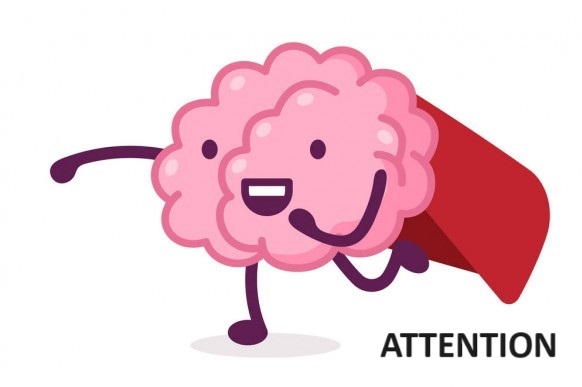
Attention is the most elementary yet crucial “superpower” of our brain. It prevents us from being overwhelmed by the continuous inputs we receive, both from the external environment and the internal milieu, allowing us to focus our limited mental processing resources only on stimuli we deem necessary at a given moment or for a specific purpose.
However, attention is not a unified phenomenon and is not as straightforward as it may initially seem. It encompasses a wide range of cognitive mechanisms that, to date, have not been fully explained, leading to lively debates in the scientific community.
The neurobiological function of attention has been and continues to be explored from various perspectives to comprehend its intricate workings. Certainly, a crucial aspect is the selectivity of this cognitive mechanism, along with considerations of its intensity, duration, and valence – whether it is positive (in the case of attention orientation towards a stimulus) or negative (in the case of avoidance or exclusion of a stimulus).
Other factors “indirectly” related to the phenomenon must also be considered, such as the characteristics of stimuli that more easily capture attention, the modes/timings of appearance of these stimuli, or the environmental conditions in which they arise.
The complexity of the cognitive process of attention has led to the succession and alternation of various theoretical models over time. However, simplistically summarising the most widely accepted theories, four primary types of attention can be identified: sustained attention, selective attention, alternating attention, and divided attention.
In the upcoming neuropsills, I will progressively delve into the various aspects surrounding these facets of the broad cognitive phenomenon that is attention. This will involve defining their key characteristics, neural substrates, neurobiological functioning mechanisms, and the resulting behavioural implications.
BIBLIOGRAPHY:
Purves D, Brannon EM, Cabeza R, et al: Principles of Cognitive Neuroscience, 2008, Sinauer Associates, Inc. (trad. it.: Neuroscienze Cognitive, Bologna, 2009, Zanichelli).
Stowe R, Ricci M: Funzioni cognitive e principi di valutazione neuropsicologica. In: Blundo C, Neuroscienze cliniche del comportamento: basi neurobiologiche e neuropsicologiche, psicopatologia funzionale e neuropsichiatria, ed 3, Milano, 2011, Elsevier.
Vallar G, Papagno C, Manuale di neuropsicologia, ed 3, Bologna, 2019, Il Mulino.


[…] Italiano English […]
"Mi piace""Mi piace"
[…] Attention is a complex cognitive process that allows us to focus our limited mental processing resources only on stimuli we deem necessary at a given moment or for a specific purpose, disregarding those that do not interest us (for further details, click here). […]
"Mi piace""Mi piace"
[…] we explored in the previous neuropsill on “Brain Superpowers” that you can find here, attention is a complex cognitive process that enables us to focus our limited mental processing […]
"Mi piace""Mi piace"